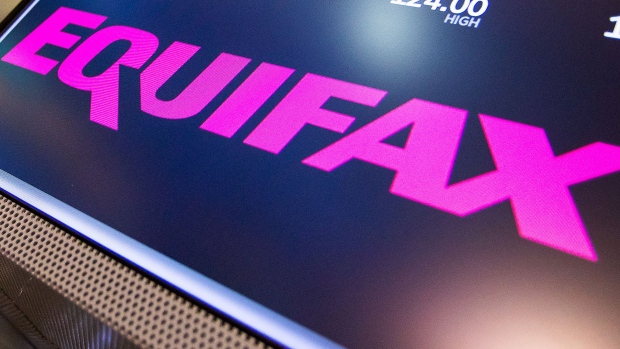Identity, mortgage fraud on the rise as economic pressures mount: Equifax survey
The Canadian Press

A new Equifax Canada survey finds people are increasingly worried about a potential rise in fraudulent activity as economic pressures build.
"Any time you see financial stress or an economic downturn, inevitably ... the motivation to commit fraud increases," said Cherolle Prince, Equifax Canada’s head of fraud and identity management consulting.
While overall fraud rates have slightly declined from a 2022 peak, identity fraud has surged. It now accounts for roughly three-quarters of all fraudulent applications across all sectors in the fourth quarter, up from about 65 per cent the previous year, the credit reporting firm said.
Prince said fraudsters tend to take advantage of economic vulnerabilities, by applying for more credit or taking on various identities to borrow more money from financial institutions. The survey found identity fraud was most pervasive in the banking sector.
Equifax Canada also says fraud is on the rise in mortgage applications — up 9.9 per cent in the fourth quarter, compared with the same period in 2022 — with Ontario seeing the highest amount.
Prince said first-party fraud — where a person provides false information — is becoming more common because people want to qualify for a house purchase they may not be able to afford.
She added the company has also seen a slight rise in true-name fraud, where someone steals a real person's identity to commit fraud.
First-party fraud is also widespread in the auto industry. Eight in 10 fraud cases in the auto industry are first-party instances, where people lie about their income or misrepresent financial statements for a car loan, Equifax application data suggests.
The report suggested the proportion of identity fraud in auto applications has doubled since 2019, with secured lending institutions especially vulnerable to these attacks.
Canadians also feel they may be paying a higher price for auto insurance because of growing fraud, the survey shows.
About 74 per cent of respondents believe insurance fraud impacts their car insurance premiums.
"Overall, fraud impacts premiums and we're seeing a lot of theft in cars (and) that does impact the insurers," said Prince.
Prince says the cost of the increased number of insurance claims eventually gets passed down to consumers.
The survey questioned 1,614 Canadians aged 18 to 65 between Feb. 2 and Feb. 4 online in partnership with Leger. The survey carries a margin of error of +/- 2.5 per cent, 19 times out of 20.
Prince said lenders and businesses need to be more careful to avoid fraudsters.
She suggested lenders follow market trends to strengthen their internal strategies and look closer at red flags among applicants.
"Anything that may propose a certain level of risk, take a closer look and validate that information immediately," she said. "I would also recommend going beyond simply trusting that the document you've received or the information you've received in the application is 100 per cent correct."
Validating information would include verifying income and employment among other measures.
This report by The Canadian Press was first published Feb. 27, 2024.
No comments:
Post a Comment